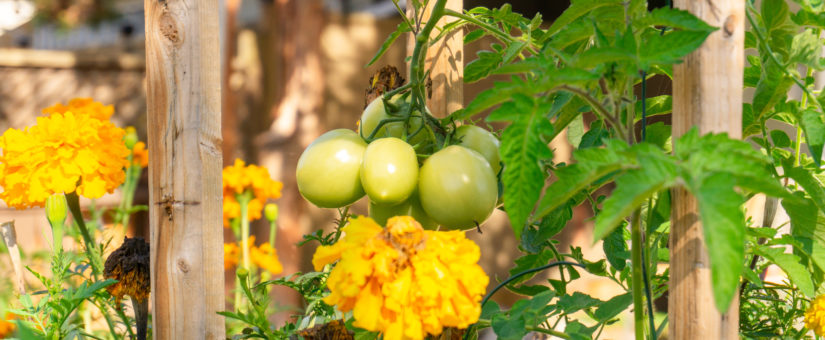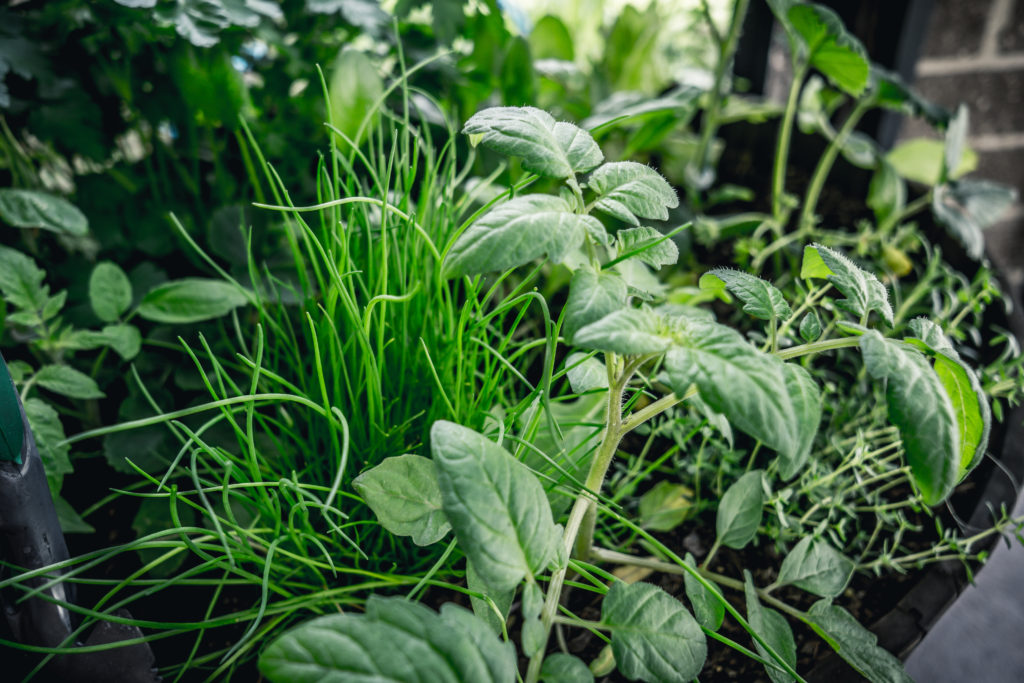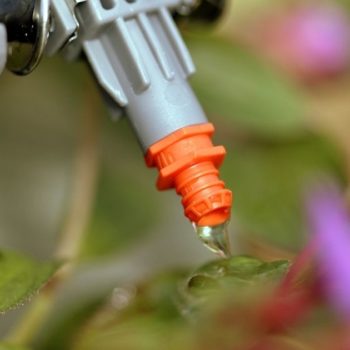
Companion planting
Get more food from the same space when you grow like-minded plants together.
Seasoned growers know that companion planting makes for a healthy and beautiful garden. It’s a simple gardening practice that involves arranging fruits and veggies in such a way that they help each other grow. It also helps gardeners (and farmers) maximize their yields with little effort and even fewer pesticides.
Companion gardening typically involves working with plants that feature contrasting yet complementary properties. The well-known “three sisters” planting of beans, corn, and squash is a perfect example. In this scenario, the corn stalks become stakes for the beans to climb. Up in the air, the beans pull nitrogen into the soil, which then benefits all three plants. The broad, prickly leaves of the squash help to keep the soil cool, moist, pest-free. It’s nature at its best.
The science behind companion planting
Before digging right into companion planting, it’s important to look at how the plants interact with one another.
While many plants enjoy cooperating, others simply refuse to help their neighbours. Here are seven tips and considerations for a thriving companion garden:
- Mutual climate cooperation
Mutual climate cooperation involves planting crops that, when fully grown, complement the needs of their neighbours. A good example of this would be growing tall, sun-loving plants like tomatoes adjacent to short, shade-tolerant plants like lettuce.
- Nurse cropping
Nurse cropping is when you plant annuals to protect perennials. Annuals can nurture young perennials until they’re strong enough to handle full sun and strong winds on their own. Annuals can also reduce soil erosion and protect the perennial’s root system.
- Trap cropping
It is alleged that aphids despise the smell of mint and basil discourages flies and hornworms from attacking tomatoes. Trap cropping refers to the planting of a bait crop that will attract certain pests to itself, and away from more valuable crops. Some die in the process.

- Symbiotic nitrogen fixation
By using small nodules on their roots, peas, beans and other legumes can fix atmospheric nitrogen in the soil that other plants need to survive. Similarly, beets do well near leafy greens because both plants offer the minerals the other requires.
- Biochemical pest suppression
Some plants secrete chemicals that can protect their neighbours. Marigolds, for example, release a natural pest repellent called thiophene, while others emit a pheromone that stops insects from mating. Allelopathy is another form of biochemical suppression which happens when chemicals from the root system of one plant discourage competition and growth from others.
- Habitat influence
Similar to trap cropping, habitat influence refers to neighbouring plants that attract beneficial predators to act as a natural pesticide. For example, dill attracts praying mantises and ladybugs, both of which eat common garden insects, while garlic wards off pests with its strong odour.
- Biodiversity
Many pathogens prefer specific plants. For example, hornworms tend to plague tomato gardens while bulb mites like onions. If you mix up your plants, you can decrease the possibility of crop infestation.
Not only is companion planting fun and fruitful, but it will also inherently make your garden more attractive. The best part is, many companion plants are likely what you’re already planning to grow this year.
You can further enhance your companion garden with help from our expanding list of Hygrozyme products. Hygrozyme Products’ unique HYSHIELD formula is designed to boost your plant’s immune system and prevent infestation while our Hygrozyme is a powerful blend of concentrated, beneficial enzymes that work synergistically to ensure plants achieve their full genetic potential. Contact us today for more information.
- On April 27, 2020


